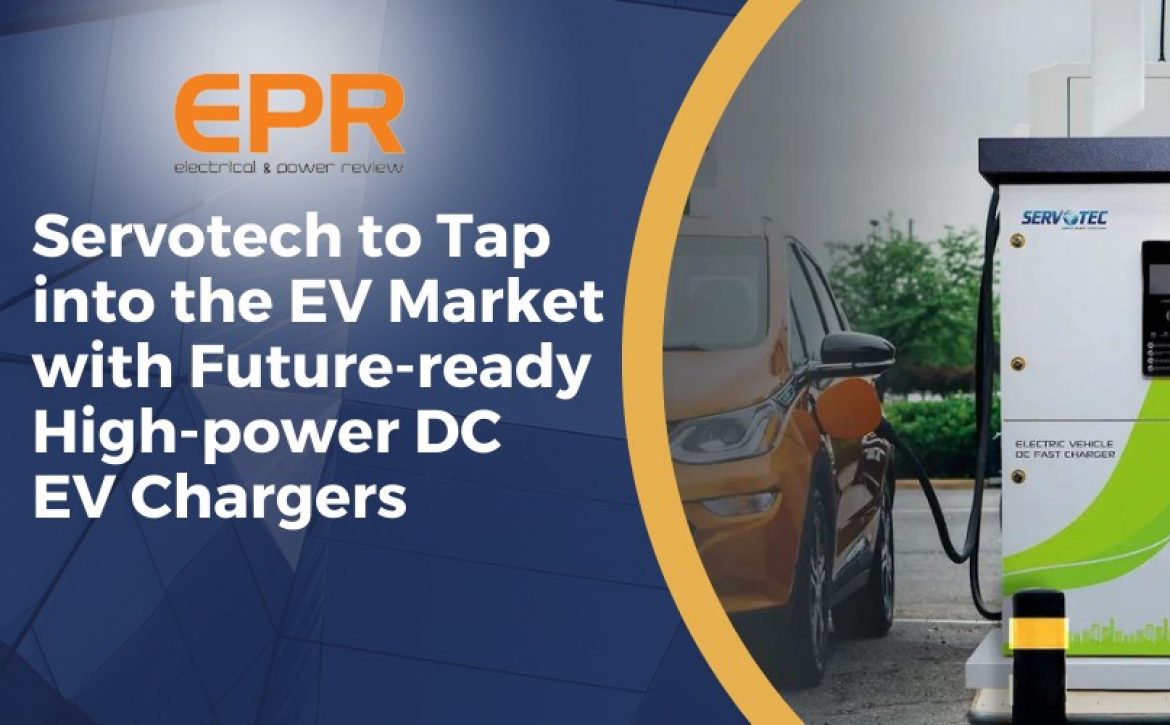Servotech to tap into the EV market with future-ready high-power DC Chargers
Q1- How will the government’s plan to construct 6,000 km of EV-ready highway in the ‘Golden Quadrilateral’ benefit the charging infrastructure sector?
The development of charging stations along the Golden Quadrilateral presents significant business opportunities, revenue generation, and job creation prospects. As electric vehicles travel along this transportation corridor, the need for charging services becomes inevitable. This implies that every electric vehicle passing through will likely require a charge, leading to a substantial revenue stream for charging station operators, whether state-owned or privately owned. The establishment and operation of these charging stations will not only create employment opportunities, including roles in station maintenance, operation, and customer service but also foster a thriving ecosystem within the EV charging industry. Every individual involved, whether a fabricator, EV charger manufacturer, or service provider, stands to benefit from this growing sector. Overall, the integration of charging infrastructure along the Golden Quadrilateral supports the growing demand for electric vehicles and stimulates the transition to consumer-friendly EVs by creating a robust and well-connected charging infrastructure. This move promotes decarbonized mobility and caters to the evolving needs of the sustainable automotive industry, furthering India’s commitment to a greener future and every EV user traveling through this highway will be able to drive without having to worry about anything.
Q2- How is your company planning to tap the evolving market in the EV charging infra sector?
The EV charging market is huge and can be tapped at a large scale. Our workforce is working 10 times faster and with great efficiency to tap all the possibilities of the market by actively adapting to India’s evolving EV charging landscape through innovation, expansion, and strategic collaborations. Committed to sustainable transportation, we prioritize market-aligned strategies to reduce carbon emissions. Our unwavering dedication drives us to integrate cutting-edge technologies, enhance efficiency, and anticipate future needs through R&D. Guided by data, our nationwide expansion strategically places charging stations in high-demand areas. Strategic partnerships foster synergies and accelerate robust infrastructure development. With a focus on driving the future of electric mobility in India, we strive to lead the charge towards a greener tomorrow.
Q3- How is your company planning to mitigate the challenges and issues in the EV charging infra sector?
We are committed to fostering enduring relationships with our consumers and ensuring their satisfaction remains our top priority. Our dedication extends to resolving any issues promptly, whether related to power, charger functionality, hardware, software, or compatibility. As we navigate the challenges within India’s EV charging infrastructure, Servotech adopts a multifaceted approach. Our strategic initiatives encompass strategic location planning, last-mile connectivity, investment in advanced technology, high-speed charging solutions, smart infrastructure, and partnerships with governments and local authorities. Additionally, we prioritize consumer education, conduct awareness campaigns, and ensure transparency in our services. By embracing sustainability, agility, and customer-centric innovation, Servotech aims not only to overcome current hurdles but also to pioneer a sustainable and user-friendly charging network, driving India’s transition to electric mobility.
Q4- Which innovative products/ solutions your company has to offer?
Our company provides AC and DC EV chargers catering to different vehicle types and charging needs. While AC EV chargers may see minimal usage on highways where two or three-wheelers are less common, our range of DC chargers, spanning from 60 kW to 360 kW, is well-suited for medium-capacity cars to heavy commercial electric vehicles. In anticipation of future developments such as introducing E-buses and trucks, Servotech offers DC EV chargers with power capacities of 240 kW and 360 kW. Additionally, our solar-powered EV charging carport utilizes sunlight to charge vehicles, backed by lithium batteries for nighttime charging. The process involves solar panels converting sunlight into electricity, which is then used by bidirectional EV chargers to charge vehicles. Any excess electricity is stored in batteries and can be sent to the grid once fully charged. At night, the charged batteries act as backup, providing electricity to the charger for continued EV charging.
Q5- How has the EV charging infra industry contributed to the renewable energy goals?
Integrating renewable energy sources into EV charging stations is crucial for achieving sustainability. By leveraging clean energy, these stations not only curb carbon emissions but also bolster the resilience and eco-friendliness of the charging infrastructure. The incorporation of solar panels and Battery Energy Storage Systems (BESS) addresses the intermittency of renewables, ensuring a stable power supply. BESS can store surplus renewable energy during low-demand periods and release it during peak times, effectively managing energy production fluctuations. This technology promotes sustainable charging practices and eases the strain on the power grid. The environmental advantages of sustainable EV charging infrastructure are significant, with electric vehicles emitting 17-30% fewer greenhouse gases than petrol and diesel cars. This underscores the vital role of sustainable charging in meeting climate objectives and fostering a cleaner, greener future.
The Interview is originally published in EPR Magazine’s March issue
Read Full Interview: https://www.eprmagazine.com/renewables/servotech-to-tap-the-ev-market-with-future-ready-high-power-dc-chargers/


